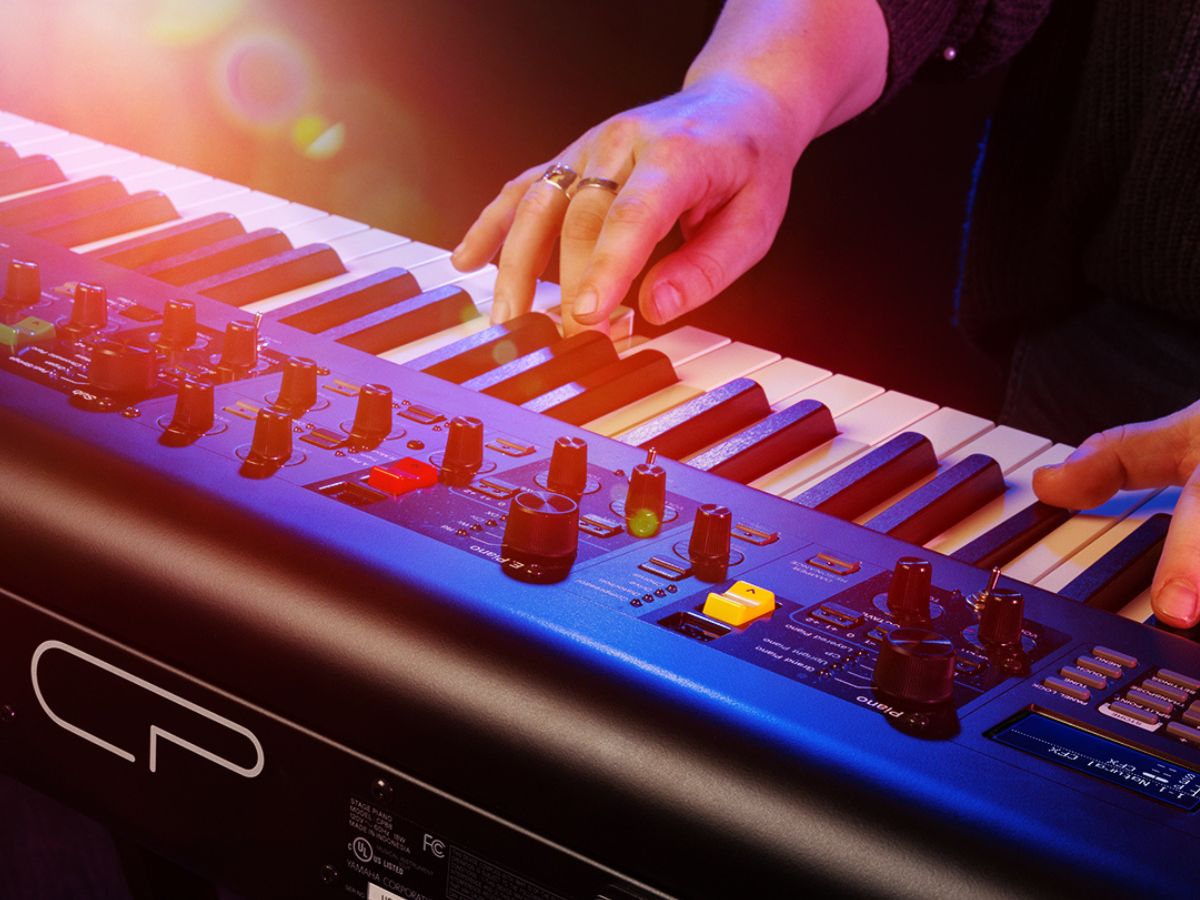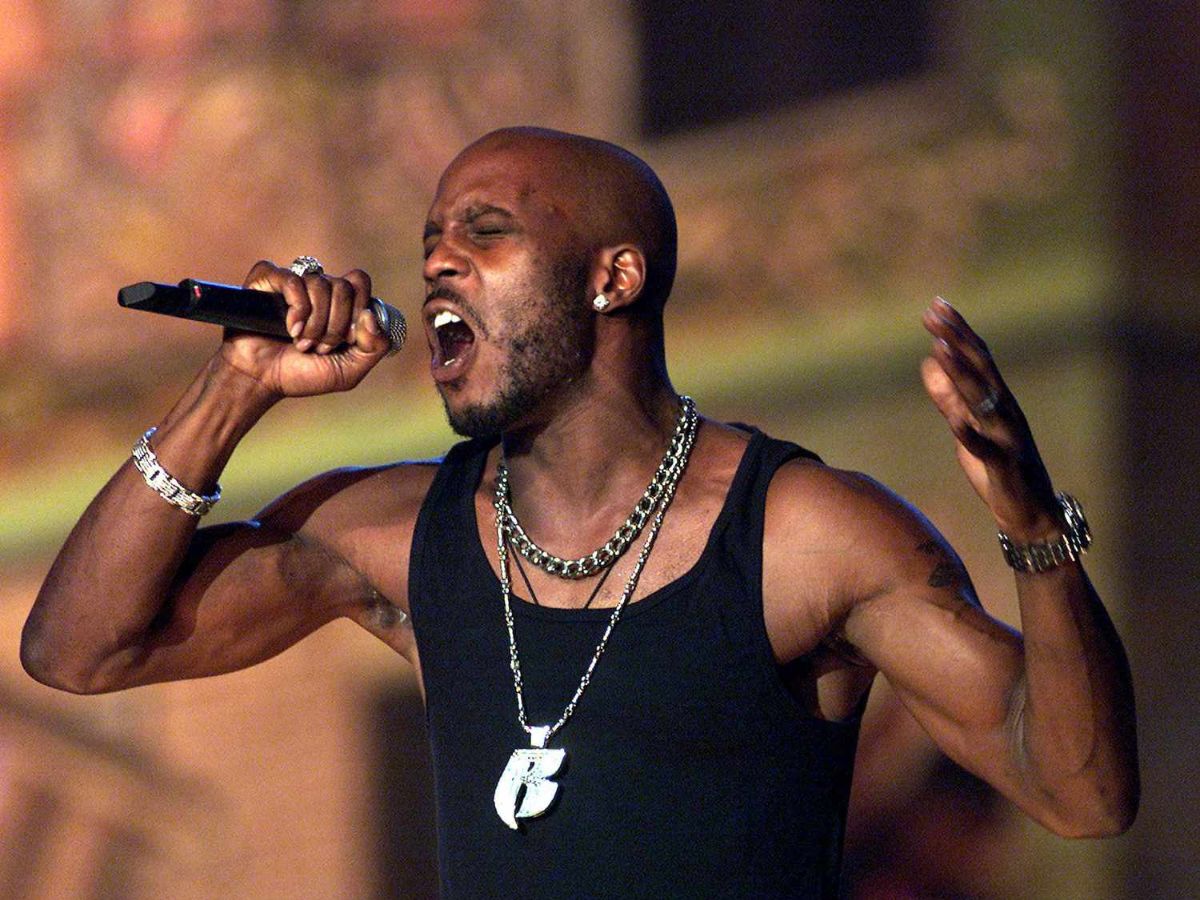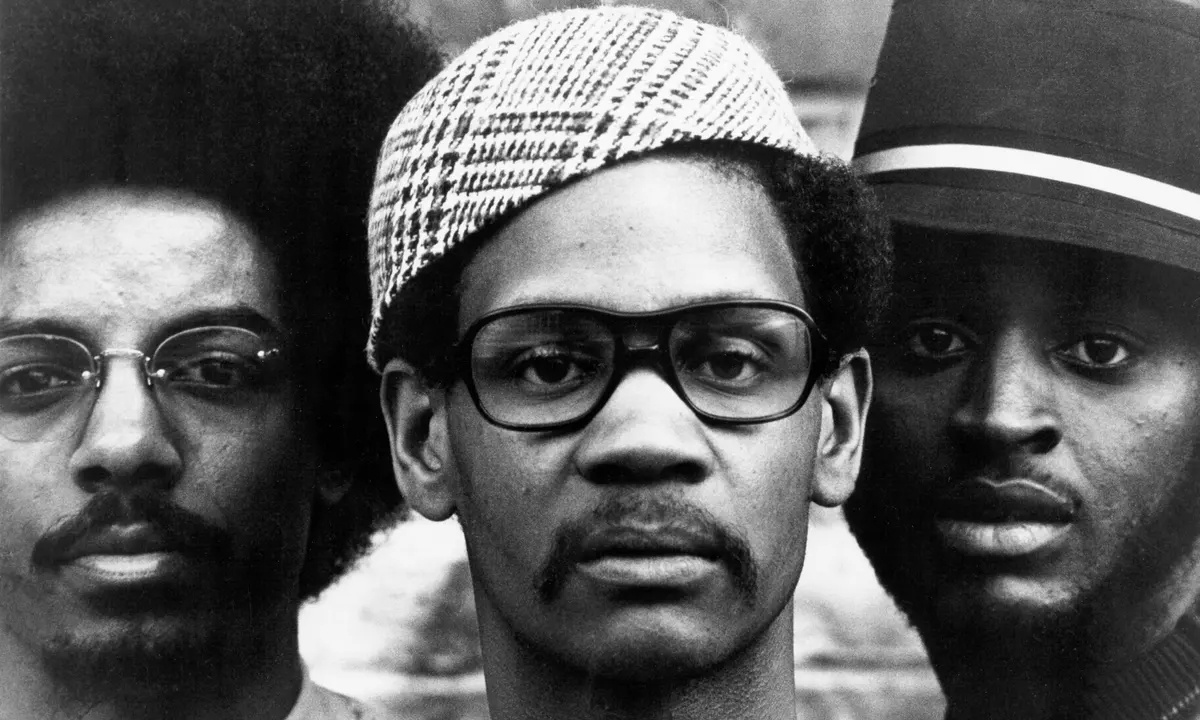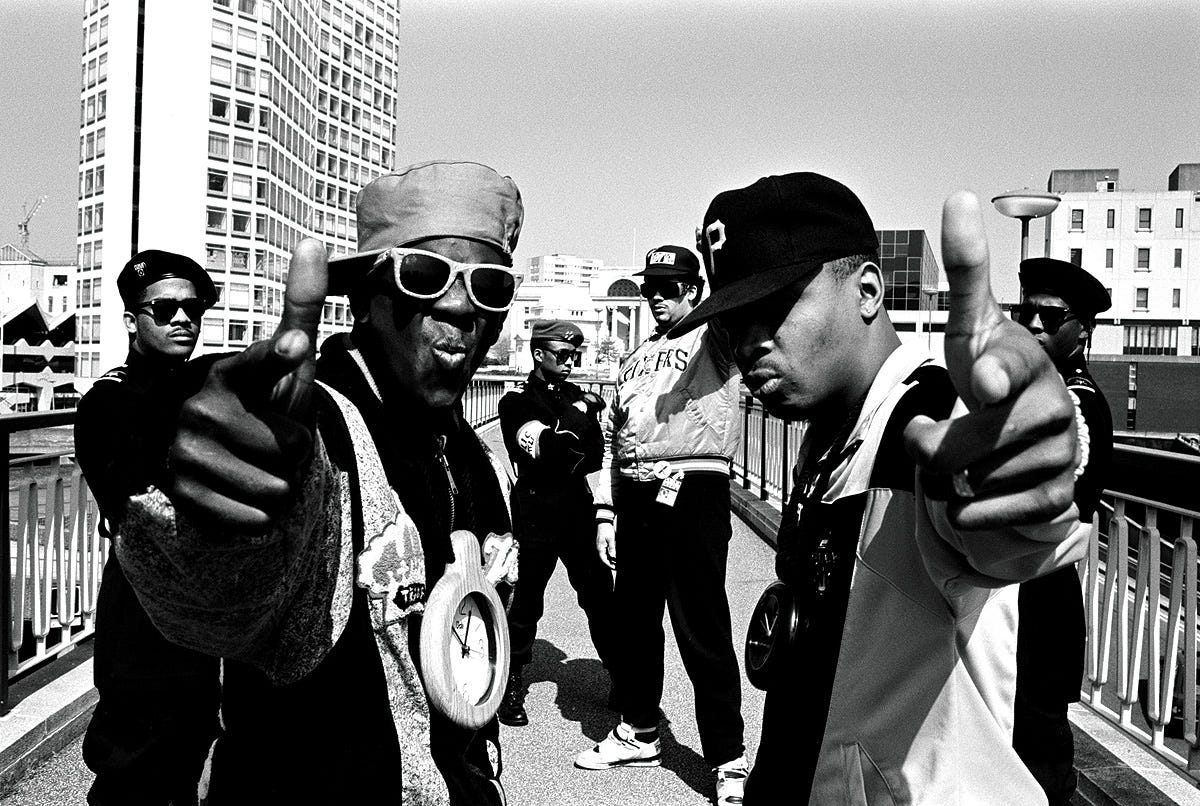

Hip Hop
What Keys Are Played For Hip Hop
Modified: January 29, 2024
Learn about the keys played in hip hop music and how they contribute to the unique sound of the genre. Explore the different techniques and styles used by hip hop producers.
(Many of the links in this article redirect to a specific reviewed product. Your purchase of these products through affiliate links helps to generate commission for AudioLover.com, at no extra cost. Learn more)
Table of Contents
Introduction
Welcome to the world of Hip Hop, where the beats are infectious, the lyrics are potent, and the culture is vibrant. Hip Hop has emerged as one of the most influential and popular music genres of our time, captivating audiences around the globe. From its birth in the streets of New York City to its global reach, Hip Hop has evolved into a multifaceted and diverse art form.
At the heart of Hip Hop music is the use of catchy melodies and rhythmic patterns that grab the listener’s attention. One of the key elements in creating these captivating tunes is the selection of the right musical key. The key in music refers to a specific set of notes and chords that determine the tonality and mood of a song.
In this article, we will explore the basics of keys in Hip Hop music, uncovering the common keys used in this genre, and delve into the intricacies of key modulation and chord progressions. Whether you’re an aspiring Hip Hop producer, an avid listener, or simply intrigued by the inner workings of music, this article aims to provide you with a deeper understanding of the importance of keys in Hip Hop.
Key Basics for Hip Hop Music
Before diving into the specific keys used in Hip Hop music, let’s discuss some key basics. In music theory, a key is a musical framework that establishes a tonal center for a piece of music. It consists of a collection of notes and chords that create a sense of tonality and establish the overall feel and mood of the composition.
When it comes to Hip Hop, the most commonly used key is the minor key. The minor key imparts a sense of melancholy, intensity, and raw emotion that aligns well with the lyrical content often found in Hip Hop songs. It provides the perfect backdrop for expressing personal experiences, struggles, and societal issues with a gritty and soulful vibe.
In addition to minor keys, major keys are also used in Hip Hop music, albeit less frequently. Major keys tend to create a more upbeat and positive atmosphere, often associated with celebratory or energetic tracks. They can add a touch of brightness and optimism to a Hip Hop song, making it more catchy and uplifting.
Understanding the basics of keys in Hip Hop music is essential for both producers and artists. Producers need to have a strong grasp of key theory to create melodies and chord progressions that harmonize well with the chosen key. Artists, on the other hand, can benefit from knowing the key of a beat when writing lyrics and crafting their flows. This knowledge allows them to find the right cadence and match their delivery to the mood of the song.
In the next section, we will explore some of the common keys used in Hip Hop music, shedding light on their unique characteristics and applications in the genre.
Common Keys Used in Hip Hop
When it comes to selecting a key for a Hip Hop track, certain keys have become synonymous with the genre due to their tonal qualities and historical use in popular Hip Hop songs. While there are no hard and fast rules, here are some of the common keys used in Hip Hop music:
- C Minor: C Minor is arguably the most widely used key in Hip Hop. It possesses a dark and introspective feel, allowing artists to express raw emotions and dive deep into personal experiences. Many iconic Hip Hop tracks, such as “Juicy” by The Notorious B.I.G. and “Lose Yourself” by Eminem, are in the key of C Minor.
- D Minor: D Minor is another popular key in Hip Hop. It has a slightly brighter and more energetic feel compared to C Minor, which makes it suitable for creating catchy hooks and melodic lines. Artists like Kendrick Lamar and J. Cole have frequently utilized D Minor in their music.
- E♭ Minor: E♭ Minor is known for its atmospheric and slightly melancholic qualities. It has been utilized in many introspective and introspective Hip Hop tracks, giving them a moody and introspective vibe. Examples include “Stan” by Eminem and “One Mic” by Nas.
- F# Minor: F# Minor is a key that exudes a stylish and sophisticated feel. It has been employed in many modern Hip Hop tracks, particularly those with a trap influence. The song “Sicko Mode” by Travis Scott is an example of a hit track in F# Minor.
- G Major: While minor keys dominate the Hip Hop landscape, G Major offers a refreshing change. This key brings a more positive and uplifting vibe to a track, perfect for creating anthems or feel-good party songs. Artists like Kanye West have used G Major in their music, such as in the song “Good Life.”
These are just a few examples of the keys commonly used in Hip Hop music. It’s important to note that there are no strict rules or limitations when it comes to key selection. Hip Hop is a creative and versatile genre, allowing artists and producers to experiment with different keys to create unique sounds and evoke specific emotions.
Next, we will explore how different subgenres within Hip Hop utilize specific keys to create their distinct sonic identities.
Keys for Different Hip Hop Subgenres
Hip Hop as a genre has diversified over the years, giving rise to various subgenres that each have their own unique characteristics and styles. The choice of key plays a crucial role in defining the sonic identity of these subgenres. Let’s explore some of the keys commonly associated with different Hip Hop subgenres:
- Boom Bap: Boom Bap is a classic and influential subgenre of Hip Hop characterized by its gritty drum breaks and sample-based production. In Boom Bap tracks, keys like C Minor and D Minor are often utilized to create a dark and nostalgic atmosphere, reminiscent of the golden era of Hip Hop.
- Trap: Trap music has gained immense popularity in recent years, with its heavy basslines and aggressive production. Keys like F# Minor and G# Minor are commonly used in Trap, giving the tracks a dark and menacing vibe that complements the intense and trap-influenced beats.
- West Coast/G-Funk: The West Coast/G-Funk subgenre is known for its laid-back and funky style. Keys like A Minor and E Minor are frequently employed in this subgenre to create a smooth and relaxed feel. Artists like Dr. Dre and Snoop Dogg have embraced these keys to craft their signature West Coast sound.
- Alternative/Experimental: Alternative and experimental Hip Hop subgenres often push the boundaries of traditional sound and incorporate eclectic elements. These subgenres often utilize unconventional keys like B♭ Major or E♭ Major to create a unique and avant-garde sonic landscape.
- East Coast: The East Coast Hip Hop subgenre, synonymous with the birthplace of Hip Hop, has its distinct sound characterized by its gritty lyrics and boom-bap beats. Keys like A Minor and C Minor are frequently chosen in East Coast tracks to evoke a raw and gritty aesthetic.
It’s important to note that these are just general observations and that artists and producers within each subgenre have the creative freedom to experiment with different keys to create their unique sound.
Next, we will explore how chord progressions and key modulations are used in Hip Hop to add depth and variation to the music.
Chord Progressions and Key Modulations in Hip Hop
Chord progressions play a crucial role in shaping the musicality and emotional impact of a Hip Hop track. They provide a harmonic foundation for the melodies and help create the overall mood of the song. While Hip Hop tends to have simpler chord progressions compared to other genres, it doesn’t mean they lack creativity or depth.
In Hip Hop, the most common chord progressions are based on minor and major triads. These triads are built upon the notes of the chosen key and are often repeated throughout the song, providing a recognizable structure and foundation. Simple yet effective progressions like the I-IV-V or the II-V-I can be found in countless Hip Hop tracks, offering a sense of familiarity and catchiness that resonates with listeners.
Key modulations, on the other hand, involve changing the tonal center of a song by transitioning to a different key. This technique is often used to add variation and musical interest to a track. In Hip Hop, key modulations can be employed to create build-ups, transitions between song sections, or to enhance a climactic moment in a song.
When it comes to key modulations in Hip Hop, the most common technique is to move up a half step or down a whole step. This adds tension and excitement to the music, as the listener experiences a subtle yet impactful shift in the key. Key modulations can also be used to transition between different sections of a song, such as going from a verse in one key to a chorus in another key.
Experimenting with chord progressions and key modulations is an excellent way for producers and artists to add depth and variation to their Hip Hop tracks. It allows for creative expression, injects unpredictability into the music, and keeps listeners engaged.
Now that we’ve explored the importance of chord progressions and key modulations in Hip Hop, let’s move on to some tips for choosing keys in Hip Hop production.
Tips for Choosing Keys in Hip Hop Production
When it comes to choosing the right key for your Hip Hop production, there are several factors to consider. The key you select can greatly influence the overall mood, energy, and impact of the song. Here are some tips to help you make informed decisions when choosing keys in Hip Hop production:
- Consider the lyrical content and message: The key should complement the lyrical content and emotional message of the song. For introspective and emotional tracks, minor keys like C Minor or D Minor can convey a sense of melancholy, while major keys like G Major can create a more upbeat and positive vibe.
- Experiment with different options: Don’t be afraid to explore different keys and experiment with how they resonate with your beats or lyrics. Sometimes, a key you didn’t initially consider can transform the entire vibe of a track and take it in a fresh direction.
- Consider the sonic palette: Different keys have inherent sonic qualities that interact with the elements in your production. Pay attention to how the key interacts with the melodies, basslines, and drum patterns. Certain keys may enhance the impact of certain sounds, while others may clash or muddy the mix.
- Be aware of the range: Consider the vocal range of the artist or artists who will be performing on the track. Ensure that the key you choose allows them to comfortably showcase their vocal abilities without straining or compromising the quality of the performance.
- Embrace key modulation: As mentioned earlier, key modulations can add depth and variation to your Hip Hop tracks. Don’t be afraid to experiment with key changes within the song to create build-ups, transitions, or climactic moments. This can heighten the impact of the music and keep the listener engaged.
- Listen to existing Hip Hop songs: Take inspiration from successful Hip Hop tracks in similar styles or subgenres. Pay attention to the keys they use and analyze how they enhance the overall feel and impact of the music. This can serve as a valuable reference point for your own productions.
Remember, there are no strict rules when it comes to choosing keys in Hip Hop production. Trust your instincts, be open to exploration, and let your creative vision guide you. The key you choose should ultimately serve the artistic direction of the track and create a powerful connection with your audience.
Now, armed with these tips, you are ready to embark on your Hip Hop production journey with a deeper understanding of the importance of keys in shaping the sound and impact of your music.
Conclusion
Choosing the right key is a vital aspect of Hip Hop music production. It sets the tone, carries the emotion, and influences the overall impact of the song. Whether you’re a producer crafting beats or an artist expressing your lyrical prowess, understanding the significance of keys in Hip Hop is essential for creating captivating and resonant music.
In this article, we explored the basics of keys in Hip Hop, identifying the common keys used in the genre and how they contribute to the mood and aesthetic of the music. We also delved into the role of chord progressions and key modulations, which add depth and variation to Hip Hop tracks.
While certain keys have become synonymous with specific subgenres within Hip Hop, it’s important to remember that creativity knows no limitations. You have the freedom to experiment with different keys, chord progressions, and even key modulations to develop your unique sound and style.
By considering the lyrical content, experimenting with different options, paying attention to the sonic palette, and embracing key modulation, you can carefully select the right key that complements your creative vision and connects with your audience on a deeper level.
Now, armed with these insights and tips, you are equipped to embark on your Hip Hop journey with a greater understanding of the role of keys in shaping the music’s impact. Whether you’re creating thought-provoking lyrics or crafting infectious beats, the power of keys in Hip Hop will be at your fingertips. So, immerse yourself in the richness of Hip Hop, explore the nuances of different keys, and let your creativity soar.











